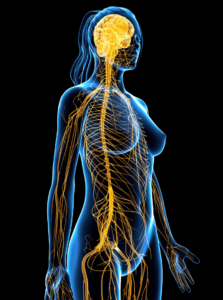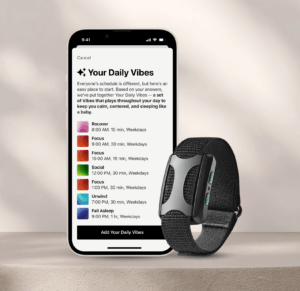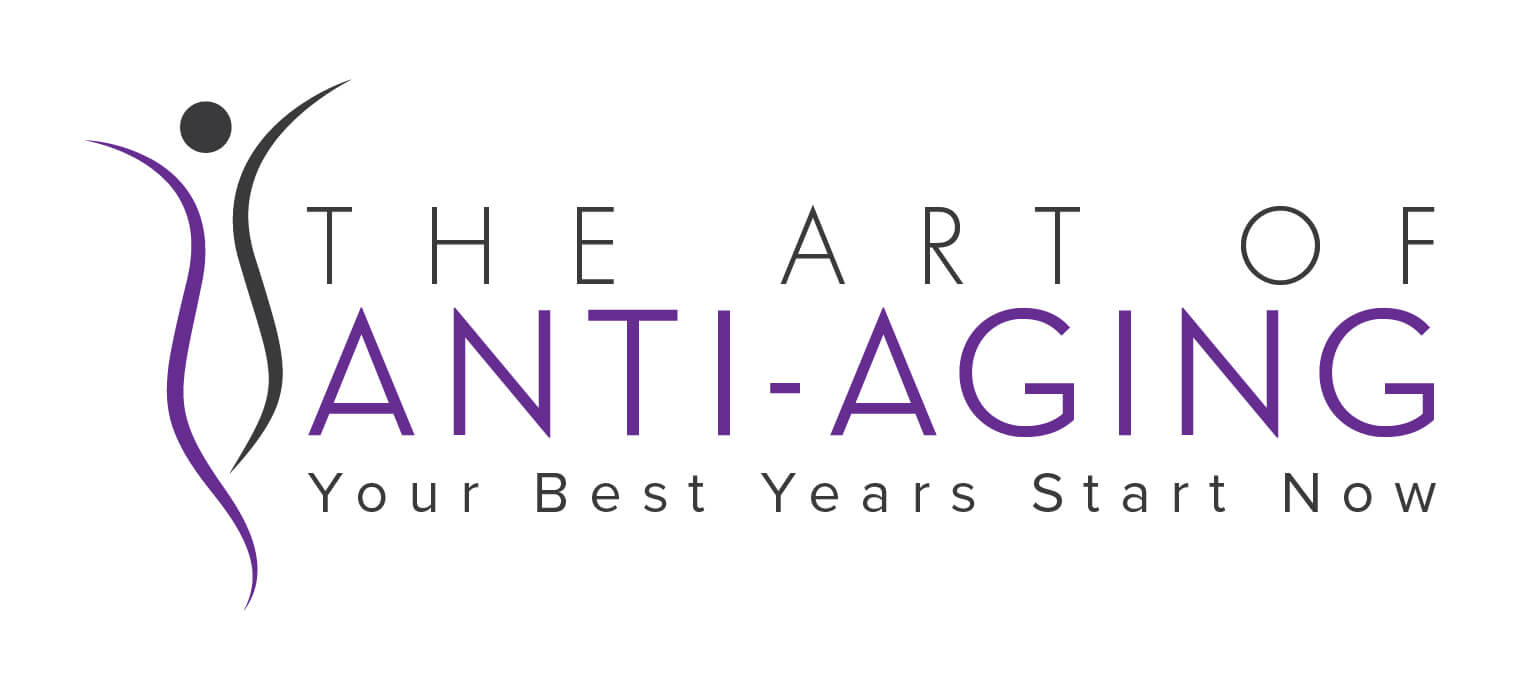If you’re feeling anxious, depressed, foggy-headed, or struggling to sleep, you may well be suffering from chronic stress–often referred to as the “silent epidemic.” Many people underestimate the impact of stress on their daily lives, and as a result, we may not recognize just how profoundly it affects our health and well-being.
Research shows that prolonged stress can suppress and weaken your immune system, making you more susceptible to infections. It’s also an important–and often overlooked–risk factor for many chronic diseases, such as cardiovascular disease and hypertension. Plus, studies have found that people dealing with stress-related issues have a 1.15 times greater risk of developing dementia.
While it might be tempting to drink a glass of wine or just hide under the covers if you’re stressed, those quick fixes don’t really tackle the problem (and can even lead to other health issues in the long term).
One real game changer? Regulate your body’s stress response by stimulating the vagus nerve!
What is the Vagus Nerve?
 The vagus nerve is the longest cranial nerve in your body, running from your brainstem down through your neck, chest, and abdomen, and connects to your vital organs. Your vagus nerve helps to balance the two systems in your body that manage your body’s stress response.
The vagus nerve is the longest cranial nerve in your body, running from your brainstem down through your neck, chest, and abdomen, and connects to your vital organs. Your vagus nerve helps to balance the two systems in your body that manage your body’s stress response.
- Sympathetic Nervous System (SNS): When you’re stressed, your body kicks the SNS—often called the “fight or flight” system—into gear. This is your body’s way of getting ready to face danger by speeding up your heart rate, widening your pupils, and directing blood to your muscles.
This response is super helpful when you actually need to react, such as if you need to escape a threat. The catch? Your body also thinks everyday annoyances and mental stressors, like being stuck in traffic or stressing about bills, are also physical dangers. When your SNS is chronically activated, it can affect your stress levels, sleep, and ability to think clearly.
- Parasympathetic Nervous System (PNS): On the flip side, we have the PNS, which is your “rest and digest” system. It helps you relax, slows your heart rate, and improves digestion.
A healthy vagus nerve is crucial for balancing these two systems. But when we’re constantly stressed, it can throw that balance off, leading to anxiety, sleep issues, brain fog, and more.
How Stimulating the Vagus Nerve Can Help
Stimulating the vagus nerve helps reset and rebalance your nervous system by activating the parasympathetic nervous system, taking you from a state of stress to one of calm.
Fortunately, there are many easy ways to stimulate your vagus nerve right at home.
- Deep Breathing
Deep, diaphragmatic breathing, where you draw air deeply into your lungs rather than just shallowly inhaling into the chest, stimulates the vagus nerve by activating the parasympathetic nervous system.
This promotes relaxation, reduces stress, and can lower your heart rate, putting you in a state of calm. Plus, stimulating more oxygen flow can help enhance your overall well-being and mental clarity.
One of the easiest techniques to try is 4-7-8 breathing. To try it yourself, simply inhale through your nose for 4 seconds, hold for 7 seconds, and exhale through your mouth for 8 seconds. Repeat this cycle for several minutes to promote relaxation.
- Heart Rhythm Meditation
If you’ve practiced mindful meditation, you already know it’s a powerful stress reliever. However, researchers have found that heart rhythm meditation (HRM), which focuses on deep, slow, rhythmic breaths, stimulates the vagus nerve even more effectively. To practice HRM, put your hand on your chest and slowly breathe in for six to eight heartbeats. Then gently exhale and repeat. In one study, researchers found that those who practiced HRM for 10 minutes a day had less stress, a deeper sense of self, and a greater awareness of the connection between their hearts, minds, and bodies.
- Physical Activity
 Research has found that both interval and endurance training help to stimulate the vagus nerve. It does that by improving your heart rate variability, which helps to enhance vagal tone, as well as stimulating the release of feel-good endorphins.
Research has found that both interval and endurance training help to stimulate the vagus nerve. It does that by improving your heart rate variability, which helps to enhance vagal tone, as well as stimulating the release of feel-good endorphins.
For better vagal tone, you want to aim for at least 150 minutes of moderate-intensity exercise each week. Activities like walking, swimming, or yoga can be particularly effective.
- Humming and Singing
If humming or singing along to your favorite tunes makes you feel relaxed, it’s not just the music doing the trick! When you hum or sing, you stimulate the vagus nerve by engaging the muscles in your throat and vocal cords, sending waves of relaxation throughout your body.
Plus, the deep, rhythmic breathing that comes with these activities boosts oxygen flow, which further activates the vagus nerve and helps you feel calm and balanced.
Try humming your favorite tune or singing along to music for a few minutes daily. You can also practice chanting “Om” or other sound vibrations.
- Cold Exposure
 As counterintuitive as it might sound, exposure to cold can get your vagus nerve working by activating your body’s relaxation response. That’s because when you feel cold, your heart rate tends to drop, and your heart rate variability improves, which are good signs for your vagal tone.
As counterintuitive as it might sound, exposure to cold can get your vagus nerve working by activating your body’s relaxation response. That’s because when you feel cold, your heart rate tends to drop, and your heart rate variability improves, which are good signs for your vagal tone.
Plus, being in the cold can boost the release of neurotransmitters like norepinephrine, which helps stimulate the vagus nerve even more.
Cold showers, ice baths, or splashing cold water on your face can all stimulate your vagus nerve, activating your PNS and promoting a feeling of calm.
- Taking Probiotics
Probiotics can stimulate the vagus nerve by influencing the gut-brain axis, which is the communication pathway between your gut and brain. Plus, a healthy gut can boost the production of the “feel good hormone” serotonin, which supports vagal tone and keeps you feeling balanced.
The Lactobacillus rhamnosus and Bifidobacterium longum strains of probiotics are known for their potential benefits for stimulating the vagus nerve. Try adding more probiotic-rich fermented foods like yogurt, kefir, and sauerkraut to your diet, or look for a high-quality USDA Certified Organic probiotic supplement that contains these specific strains.
Highly Recommended: The Apollo® Neuro to Stimulate Your Vagus Nerve
 One of the most effective ways to stimulate the vagus nerve is simply through touch. In fact, one recent 2024 meta-analysis of 137 studies found that touch interventions are especially effective at regulating cortisol levels, reducing pain, and even lessening feelings of depression. But what if constant physical touch with others isn’t an option?
One of the most effective ways to stimulate the vagus nerve is simply through touch. In fact, one recent 2024 meta-analysis of 137 studies found that touch interventions are especially effective at regulating cortisol levels, reducing pain, and even lessening feelings of depression. But what if constant physical touch with others isn’t an option?
Introducing the revolutionary Apollo®, the first scientifically-backed device that takes the power of touch to a whole new level! This wearable device transforms how you feel through your sense of touch, giving you more energy, less stress, a brighter mood, deeper relaxation, and better flow.
The Apollo works by delivering soothing vibrations – known as Apollo VibesTM – that are like music your body can feel. Higher vibrations boost energy and focus, while lower vibrations reduce stress and promote relaxation. It works so effectively that it’s been lauded by leading medical doctors, such as Dr. Mark Hyman, MD, and sleep expert Dr. Michael Breus, PhD, for good reason. The effectiveness of Apollo isn’t just a theory—again, it’s the first scientifically-backed device of its kind.
In studies with over 1,700 participants, Apollo has shown a 40% reduction in stress and anxiety, an 11% increase in heart rate variability (a sign of better stress management), and a 19% increase in deep sleep. Users also report 25% better focus and an extra 30-60 minutes of restful sleep each night, helping them wake up feeling refreshed.



This is a wonderful piece of write up. Thank you very much. I am already trying to practice humming, deep breathing and I now know why I should be exercising.
Thank you. The breathing 4 – 7 – 8 was excellent counting the seconds data.
I am very weak at the slow breathing out in 8 seconds.
What nerve connects to the low calves and the feet for balance???
My feet, do not hurt, but feel like sponges, like I need wide firm swimmer’s flippers to stand steady and walk with balance.
I’m sorry, I can’t help you, but you are describing exactly the problem I’ve been having, that “spongy” feeling when I walk, and my balance is terrible.
Sometimes when it’s especially bad it almost feels like I have springs going from my legs to my feet. I hope you find some relief, I am undergoing a knee replacement however, don’t think it will be the answer , just maybe I’ll be more steady with a stronger right knee. I wish you luck in finding out how to remedy this feeling.
I have heard about the vagus nerve. Never understood what helps the vagus, now I know. Thanks for the knowledge.
Thanks! Very helpful and interesting article!
Read this to help my son who has a hard time falling & staying asleep. Good news for me as I was singing in my car this morning, lol!
thank you very much for this wonderful article. very informative.
How can I save this one page please?
You can “bookmark” it — usually at the top of your browser screen you will find this feature. Or you could copy the link of the article and email it to yourself.